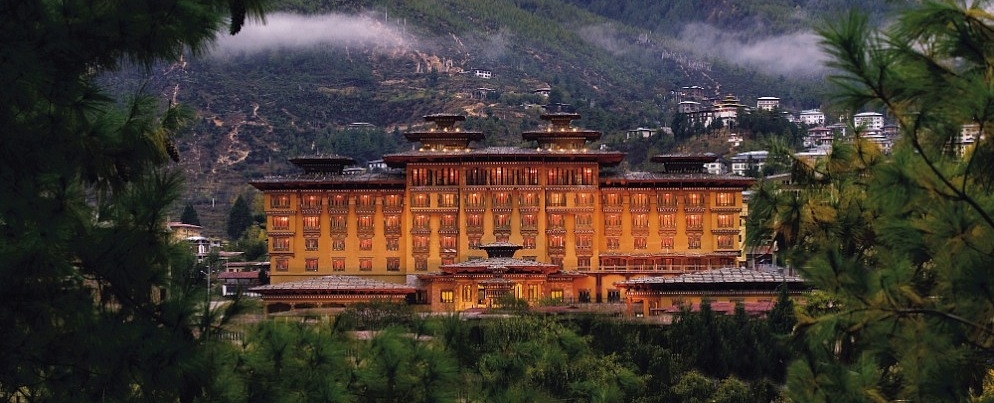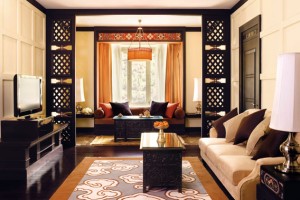Bhutan balances mindfulness with modernization. Guess which one’s winning
The Taj Tashi in Thimphu, Bhutan, is probably one of the most beautiful hotels in the world. It is certainly one of the most remarkable hotels that I’ve stayed at in any of roughly 150 cities I’ve visited. The Taj Tashi’s beauty lies not in grandeur but in its manifest sense of harmony.
Its décor seems perfectly matched to a country where the law requires homes to be built according to the principles of traditional architecture, which is to say multi-coloured wood frontages, small arched windows, sloping roofs. Where even the smallest home in the remotest part, is decorated with elaborate, beautifully executed patterns. Where monasteries across the land are filled with chanting monks. And a hundred thousand prayers wheels spin.
Even so, it’s hard to be surprised by news from Thimphu that Bhutan’s traditional emphasis on spirituality may be under threat. A recent Guardian report mentions a 21-year-old female farmer in the remote Tang valley, who already owns a tractor. She didn’t want to live in a small village anymore, but have a job in the city and the chance to wear makeup and socialise.
The trend was obvious even in late 2009. As I wandered around Thimphu and elsewhere, it was fairly apparent that young Bhutanese no longer wanted to dress in the gho and kira that defined their distinctive culture. Instead, many wanted to look – and live – like everyone else their age, around the world.
The Guardian suggests that it is the “pincer movement of urbanisation and consumerism” that is spearheading great change in the land of the thunder dragon. These are undoubted factors, but the real trigger may be technological change and the waning appeal for Bhutan of the off-grid lifestyle. The first television broadcasts were initiated in 1999. Internet service was established in 2000. In 2002, the first feature length movie was shot in Bhutan. The medium is bringing the dangerous message, that (in the words of Deng Xiaoping) it might be glorious to be rich after all and gross national product produces gross national happiness.




